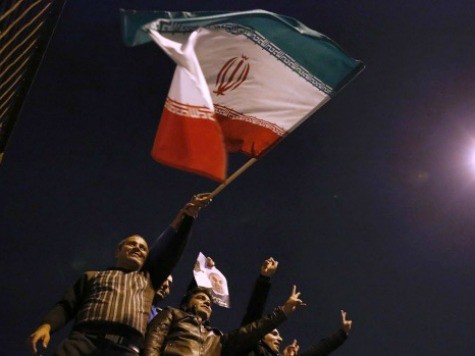TEHRAN, Iran (AP) — Iranian authorities have foiled a sabotage attempt involving tanks used for the transportation of heavy water, a key component in nuclear reactors, an Iranian newspaper reported on Thursday.
The independent Arman daily quoted Asghar Zarean, deputy head of Iran’s nuclear department, as saying that Iranian nuclear experts thwarted the sabotage attempt “in recent weeks” but did not provide a more specific timing.
“Thanks to the full alertness of our colleagues, we were able to detect and defuse the sabotage attempt,” said Zarean, who is also in charge of security at Iran’s nuclear agency.
An unidentified foreign country was behind the attempt, Zarean added without elaborating. He did not indicate what kind of result the sabotage meant to achieve.
Heavy water is not radioactive but it is essential in both reactors that generate power and in those used in manufacturing nuclear weapons. Iran has only one known heavy water reactor, in the central city of Arak, which is still under construction.
Tehran has long accused the West of working to sabotage its nuclear program, which the international community suspects is geared for nuclear arms manufacturing. Iran denies the charges, saying the program is meant for peaceful purposes such as power generation and medical research.
In 2010, the so-called Stuxnet computer virus temporarily disrupted the operation of thousands of centrifuges used in nuclear fuel production at Iran’s uranium enrichment facility in the central city of Natanz.
Iran says Stuxnet and other computer virus attacks are part of a concerted effort by Israel, the United States and their allies to undermine Tehran’s nuclear program through covert operations.
“The enemy should know that it cannot take any action against Iran’s nuclear activities,” said Zarean. “In fact, Iran is able to find and defuse any sabotage in both hardware and software fields.”
In September, authorities arrested a Ukrainian national suspected of sabotage at the Bushehr nuclear power plant. At the time, Iran’s Hamshahri daily said the “Ukrainian expert” was affiliated with a Russian contractor that works at Bushehr, which went online in 2011 with Russian aid.
International sanctions force Iran to buy Western-made parts for its nuclear program from third parties. There have been veiled suggestions that such parties are involved in sabotaging parts before they arrive in Iran.
Iran is in talks with the six world powers — the U.S., Britain, France, China, Russia and Germany — on reaching a comprehensive agreement on Tehran’s uranium enrichment program, which can make both reactor fuel and the fissile core of nuclear arms.
The deal would curb Iran’s nuclear activities enough to prevent it from making nuclear weapons, in exchange for relief from international sanctions imposed on the country over the controversial program. The two sides have a Nov. 24 deadline to seal the deal.

COMMENTS
Please let us know if you're having issues with commenting.